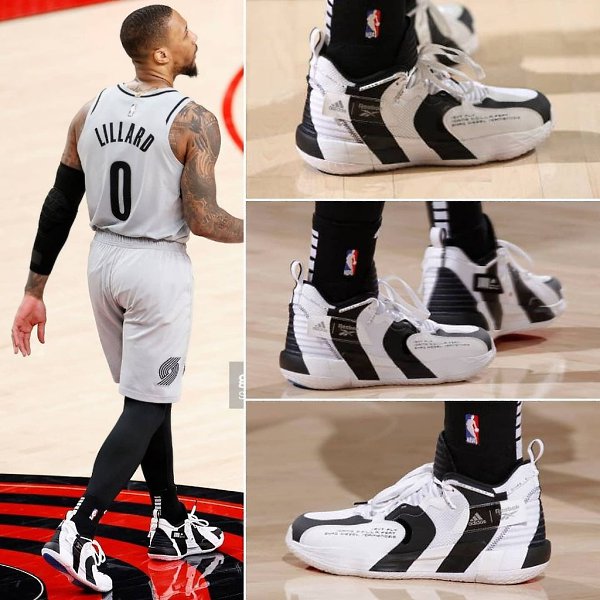Home »
Misc »
How are basketball shoes supposed to fit
How are basketball shoes supposed to fit
How Should Basketball Shoes Fit?
Trying to find new basketball shoes is not as easy as some might think. While it is exciting to get a new pair, it can be a tough task finding ones that fit correctly. How can it be so so difficult to pick out a pair of new kicks? Just find some that look sharp. Right?
There is actually a lot more to it than that, especially if you are using them to play some serious hoops. You may be someone who only cares about how they look, but if those new shoes are getting serious playing time, there are some important things that you will want to consider.
Why Is Fit Important?
As a basketball player, your shoes are your only real piece of personal equipment, so it is important that they fit correctly. Finding a sneaker with the perfect fit will give you the confidence to play without any worries. Let’s take a look at some of the main reasons you will want to make sure the ones you select fit properly.
Comfort
Your basketball sneaks will be worn for at least a couple of hours during practice or a game, so you want to be sure they are comfortable.![]() It is difficult, and not a lot of fun quite frankly, playing in shoes that hurt your feet. Concentrating on the game is difficult when all you are thinking about is your tired aching dogs.
It is difficult, and not a lot of fun quite frankly, playing in shoes that hurt your feet. Concentrating on the game is difficult when all you are thinking about is your tired aching dogs.
Support
Comfort may be king but support is a necessity. Without it, injury or long term damage to your feet and ankles could potentially keep you off of the court. A proper fitting shoe will provide you with the support you need and protect your feet, ankles and lower leg area.
Performance
Most of us want to be the best players that we can. We look for any edge we can find and use it to our advantage. Finding the right shoe for your body and your game is definitely a part of that equation. A good fitting shoe will allow you to run, cut, jump and stop to the best of your ability.
What to Look for?
There are a few things to keep in mind when searching for that perfect fit. First of all, don’t just go by the brand, look, popularity, or because your favorite player wears them.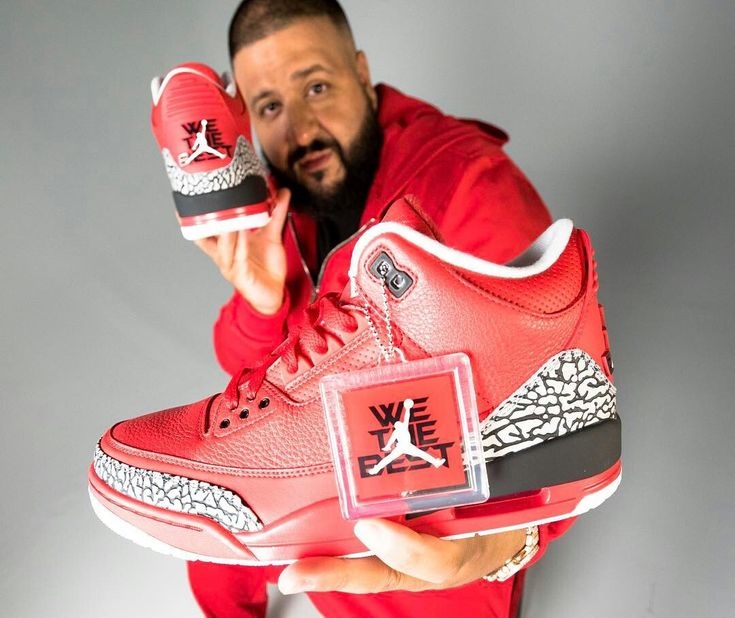 We are all different and may require specific features in a shoe. What works well for one player may not work well for another. Don’t get a shoe just because it’s the one your friends think would be the coolest.
We are all different and may require specific features in a shoe. What works well for one player may not work well for another. Don’t get a shoe just because it’s the one your friends think would be the coolest.
Also, consider the type of player that you are. Are you a point guard that needs a light shoe that allows for easy movement and making quick cuts? Or are you a big power forward or center who needs a very sturdy pair with extra support? Pinning down your individual needs and finding something that can meet them will put you in a position for optimal comfort.
Lastly, when trying on shoes, make sure to put them fully on your feet. Wear socks that are similar to what you wear on the court. Lace the shoes up properly and stand up to ensure your foot is positioned properly. Try both left and right and if you have a chance, move around in them to see what they feel like.
Now let’s take a look at some of the things you might want to look for as you try them on.
Ankle Support
Ankle injuries are one of the most common injuries in sports so good ankle support is a must.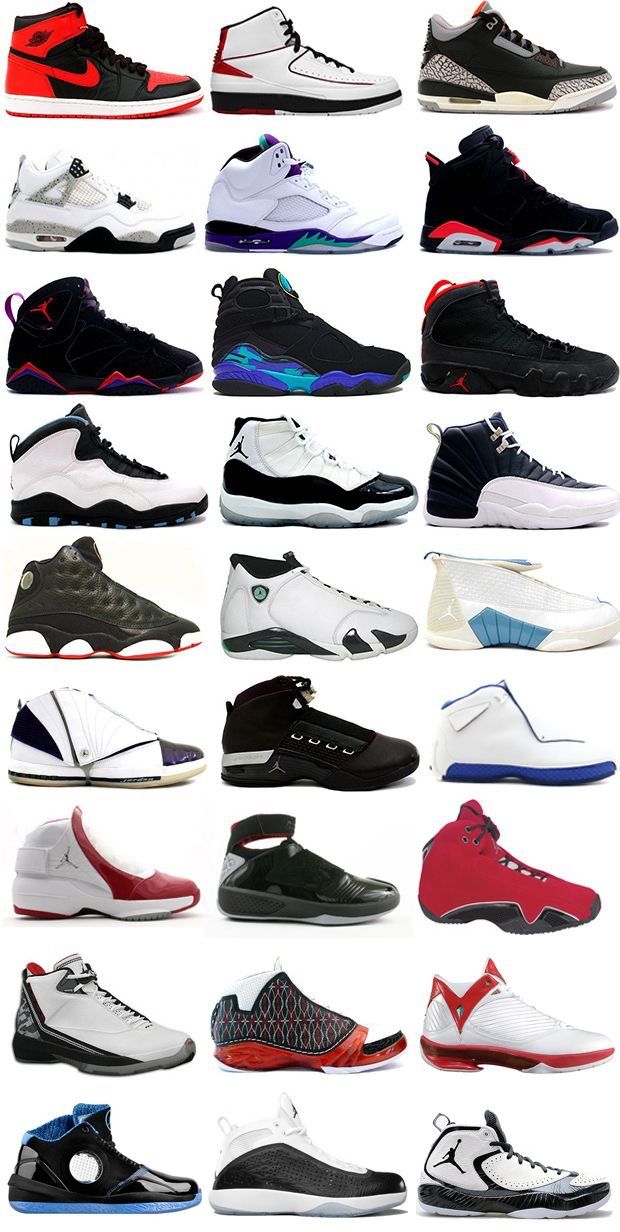 You want the upper part of the shoe to fit firmly around your ankle, with the ability to tighten it with your laces. Make sure it is not so tight that it cuts off your circulation but snug enough to keep your foot in place. You also do not want any part of the sneaker cutting into your lower leg or Achilles as this can be quite uncomfortable.
You want the upper part of the shoe to fit firmly around your ankle, with the ability to tighten it with your laces. Make sure it is not so tight that it cuts off your circulation but snug enough to keep your foot in place. You also do not want any part of the sneaker cutting into your lower leg or Achilles as this can be quite uncomfortable.
Arch Support
This is important in most shoes but you don’t want the arch support to be too extreme or it can cause pain and discomfort. The arch of the shoe should match up with the arch of your foot when you stand flat-footed. You need to feel adequate support but avoid shoes that feel like they have a lump in the side of your foot. If it does they may be a bit narrow or have too high an arch.
Broad Toe Box
The toe box is the front half of the shoe where your toes rest. You don’t want your toes to feel crammed in or crunched together. You will be able to move them freely, but they will still have some support.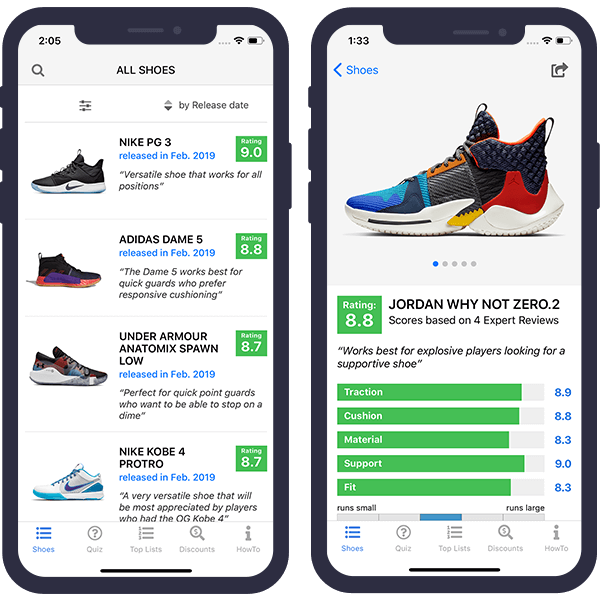 When standing, you should have about a thumb’s width between your big toe and the tip of the shoe. If it has too much space it can get caught on the ground.
When standing, you should have about a thumb’s width between your big toe and the tip of the shoe. If it has too much space it can get caught on the ground.
Heel Counter
The heel counter needs to provide support and keep your heel from sliding in any direction. It will also have some cushion for comfort but you don’t want it to be raised or elevated. You need to feel like it “gently cradles” your heel.
Vamp
The vamp is the upper portion of the shoe that covers the top of your foot. The vamp will usually wrap snuggly around the top of your foot but it doesn’t rub or irritate. If it is too tight it can force the tongue to dig into your foot. It should also be able to flex with your foot while also supporting it.
Bend
With a proper fit, the bend will be in the same place that your foot bends near the ball of your foot. If it is too large, it will bend closer to your toes and if it is too small, it will bend closer to your arch.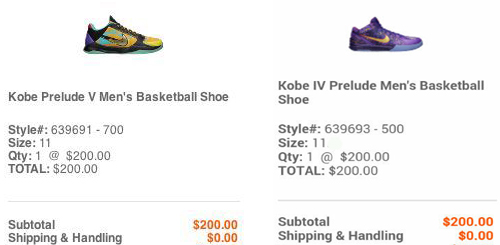 This will lead to blisters, foot pain and possibly other serious problems.
This will lead to blisters, foot pain and possibly other serious problems.
Laces
When tightened, they will feel like they are holding your feet in place. If the shoe is too big or wide, you may still feel your foot slide around even when the laces are tight.
All Feet Are Different
When looking for your new pair of kicks, remember that all feet are different. Most people have one foot slightly larger than the other. Because of this, you may need to compromise on size and fit. Most likely you will need the size that fits the larger foot. Hopefully, the size difference is negligible so you won’t really notice a difference.
Final Words
Finding new sneakers for your favorite pastime of playing basketball can be fun but could prove difficult due to the multitude of factors to consider. Since a good pair of basketball sneakers aren’t usually cheap you must make sure they fit as close to perfect as possible. A great fitting sneaker will have you hooping with the confidence necessary to up your game.
Many players often prefer specific brands because of the way they consistently fit. Do you have a specific brand that you find fits you the best? We’d love to hear from you, so please leave your comments.
How Should Basketball Shoes Fit? A Simple Buyer’s Guide
I remember buying my first pair of Nike basketball shoes as a young teenager. I was shocked at how much better I played simply because the shoes fit me so much better than previous pairs. After buying those Nike’s, my feet didn’t feel as beat up after games and I no longer got painful blisters or calluses.
Finding the perfect fitting basketball shoes can be tricky, so we have assembled this simple guide to help you. Learn how to find the right pair of basketball shoes for you and your game.
Table of Contents
- Do You Need Special Shoes for Basketball?
- How to Know What Size Basketball Shoes to Buy?
- Should Basketball Shoes be Tight or Loose?
- Do Basketball Shoes Run Big or Small?
- Should Your Toes Touch the End of the Shoes?
- High Top Basketball Shoes vs.
 Low Top Basketball Shoes
Low Top Basketball Shoes - How to Break in Your New Basketball Shoes
Do You Need Special Shoes for Basketball?
Absolutely! Basketball is incredibly rough on the feet because it requires intense sprinting and the ability to quickly change directions on the court.
Investing in a quality pair of basketball shoes will help protect your feet from injury. You’ll also perform better in basketball shoes than you would in regular running shoes.
How to Know What Size Basketball Shoes to Buy?
While most people will probably just go by their normal shoe size, this isn’t always a wise move. Basketball shoes are made differently from other types of shoes and all brands are sized differently. Always try basketball shoes on before buying them.
When shopping for the perfect fitting basketball shoes, be sure to take your thick basketball socks with you to see exactly how the shoes will fit during a game. After putting the new shoes on, do some jumping and stretching to find out how they feel on your feet.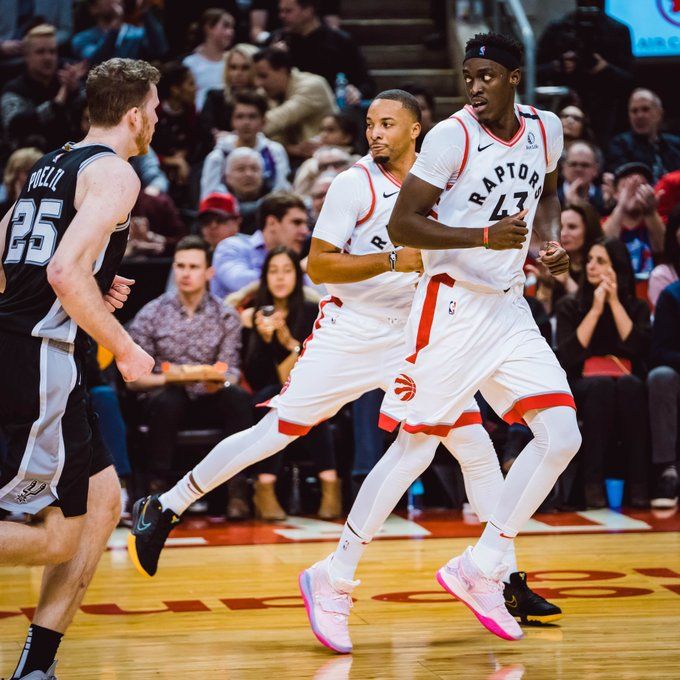 Wear them for several minutes in the store before buying them.
Wear them for several minutes in the store before buying them.
Should Basketball Shoes be Tight or Loose?
Neither. The keyword is SNUG. You want basketball shoes that have a snug fit, but you never want a shoe that suffocates your feet. You’ll never play your best basketball if your feet feel uncomfortable.
If your toes are touching the top part of the shoe, the shoe is too small. You also want to make sure that you find a shoe with a broad toe box (especially if you have wide feet), otherwise, you’ll end up with a lack of blood flow and possibly some broken toenails (OUCH!).
Do Basketball Shoes Run Big or Small?
This really varies depending on which brand of basketball shoes you buy. This is why it’s so important to always try your basketball shoes on before buying them, especially if you are thinking of trying a brand that you’ve never worn.
Many basketball players find that Nike basketball shoes tend to run a little on the small side. Adidas basketball shoes seem to run big.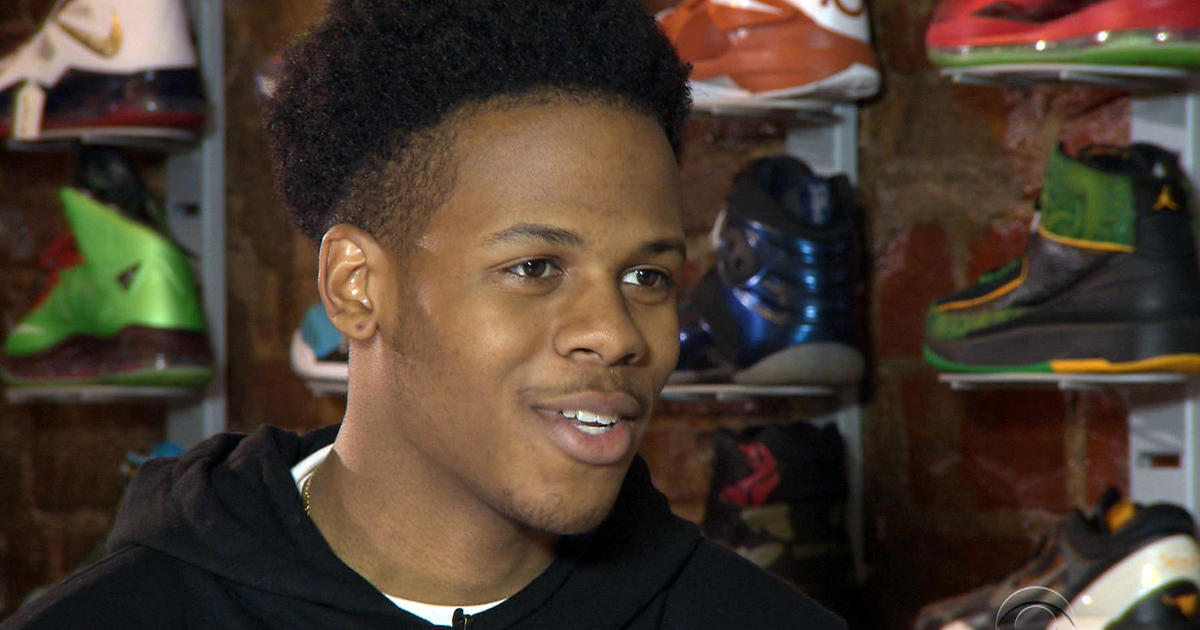 Most folks think that Under Armour’s basketball shoes fit true to size. Also, keep in mind that men’s shoes and women’s shoes are sized differently.
Most folks think that Under Armour’s basketball shoes fit true to size. Also, keep in mind that men’s shoes and women’s shoes are sized differently.
Should Your Toes Touch the End of the Shoes?
No, you never want your toes touching the end of your basketball shoes. Your feet tend to swell during intense exercises like basketball due to the heat and high amount of impact. You need to keep this in mind when buying your new basketball shoes.
The perfect fitting basketball shoes will give you a thumbnail’s length worth of space between your longest toe and the end of the shoe. The ideal fit is tight enough for support but loose enough to give your feet a little bit of breathing room.
High Top Basketball Shoes vs. Low Top Basketball Shoes
Ahhh, now we get into the great debate of whether to go with high top or low top basketball shoes. During my playing days, I endured several ankle injuries so my coaches always pleaded with me to wear high tops. If you’ve ever rolled an ankle while on the court, you know how painful it can be!
The old-school thinking was that high top shoes provided more ankle support than low tops, making it less likely that you’ll suffer from a rolled ankle.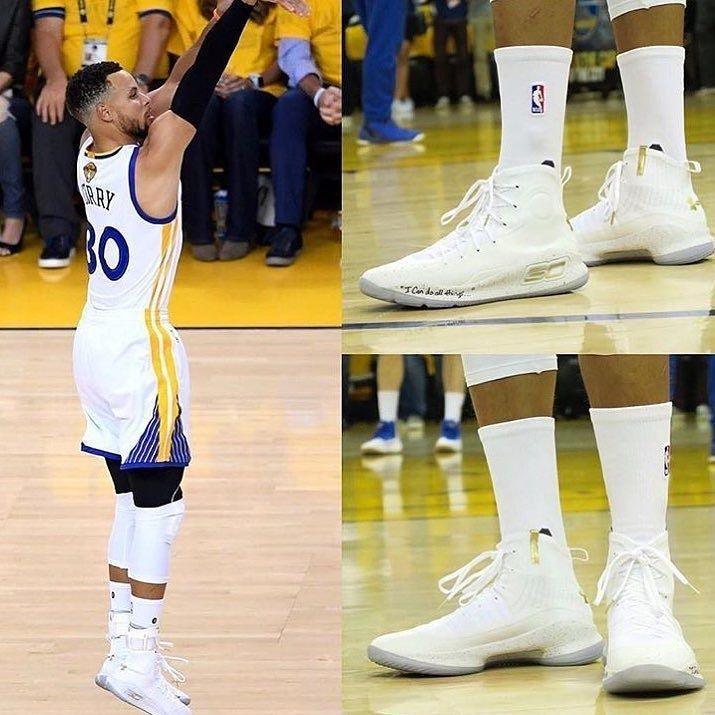 However, after several recent studies, we have learned that high tops don’t protect the ankle any better than low tops.
However, after several recent studies, we have learned that high tops don’t protect the ankle any better than low tops.
With this new knowledge, what type of basketball shoe should you buy?
Post Players
Big men who are power forwards or centers usually prefer a high top basketball shoe. The big boys down low on the block don’t rely on speed as much as the guards do so they can get away with a heavier shoe. Post players typically like high tops since they tend to have to deal with more contact when going up for rebounds.
Guards
Most guards opt for a low top shoe since they need the lightest weight possible to play at top speed. Low tops enable guards to have a greater amount of traction and change directions quickly. Any player who relies on agility as part of their game should choose a low top.
Wing Players
For small forwards or wing players, it may be best to opt for a pair of mid-top basketball sneakers.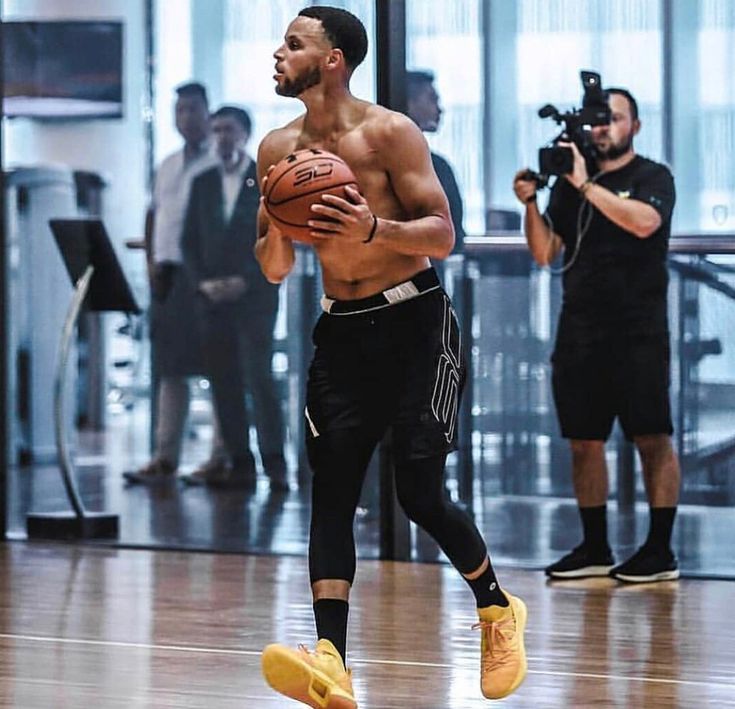 The mid-tops will provide a decent level of stability but won’t be as heavy as high tops.
The mid-tops will provide a decent level of stability but won’t be as heavy as high tops.
How to Break in Your New Basketball Shoes
Nothing is more comfortable on the court than a pair of well-worn basketball shoes! Like any type of shoes, basketball shoes feel their best when they are broken in.
Wearing brand new shoes on the court that haven’t been broken in can be uncomfortable and even hurt your feet. Here are a few tips to break in your new basketball shoes.
1. Give Yourself Plenty of Time
Never buy your shoes right before the basketball season starts. Always purchase your new shoes at least a couple of weeks before the season so that you won’t be rushing to break them in. This will also give you enough time to get used to the feel of your new shoes.
2. Wear Them When You’re Not on The Court
To break your new shoes in faster, wear them even when you’re not on the court. Obviously, you don’t want to get your new kicks dirty, but if you’re just hanging around the house all day, put them on.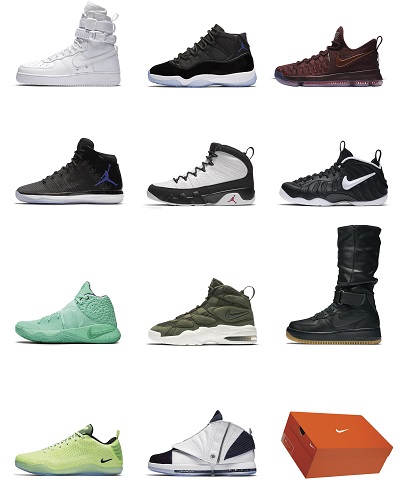 Many players notice that the new shoes start to feel better after only wearing them around the house for a few days.
Many players notice that the new shoes start to feel better after only wearing them around the house for a few days.
You can also walk or lightly jog around the neighborhood in your new shoes. This will help the rubber and leather components to loosen up a little bit.
3. Wear Two Pair of Socks
To break your new shoes in even faster, wear an extra pair of socks. This will help stretch the heels of the shoes out. Lots of basketball players choose to keep wearing a couple of pairs of socks even after the shoes are broken in for the added protection against blisters.
Related: Check out our guide on finding the best pair of basketball socks.
4. Do Drills
Before competitive games start, take a few days to put your new basketball shoes through some drills. Since these drills will simulate some game movements, you’ll get a better idea of how tight or loose you want your shoes to feel. This is the ideal time to adjust your laces if needed.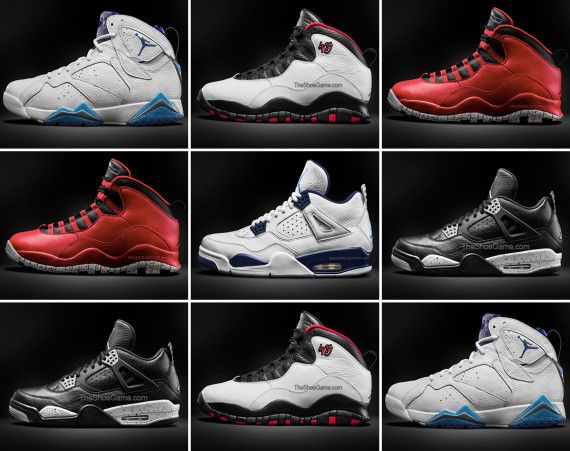
5. Game Time
Once you feel comfortable and confident in your new basketball shoes, it’s time to wear them in games. With a stylish new pair of kicks, you’ll be ready to dominate the competition!
Mike Noblin
Mike has been involved with basketball for over 30 years as a player, coach, and bettor. He has a degree in Sports Psychology and enjoys following both the NBA and College Basketball on a nightly basis.
Basketball shoe selection criteria
Sole quality
The quality of a basketball shoe directly depends on the quality and properties of its sole. It's not only about being able to quickly develop speed on the court, but also about how secure your foot will feel during a tense match. In shoes with a “weak” sole, you can easily slip or fall, that is, injure yourself - and this is unacceptable for a young promising athlete. You need a quality rubber outsole that will allow you to reach your full potential. Look for outsoles with a multi-directional tread pattern - this is the pattern that will give you maximum traction on the court, so you will always be half a step ahead of your opponent when moving sharply to the right or left.
A good sole should do two things: secure grip and smooth traction. These two terms are often confused with each other, meaning the same thing, which is wrong. In simple terms, traction is what keeps you on the court, while traction is what determines the quality of movement on it.
Although they are two separate things, in a quality basketball shoe, grip and traction must work in tandem. A sole that lacks one of the components is not suitable for basketball.
The best basketball shoes must provide a quality grip that will allow the player to stop instantly, no matter in what direction and at what speed he was moving. If you are running fast and suddenly stop to take a shot on the ring, it is very important that the sole has a clear grip on the ground and does not allow the foot to continue to move forward due to momentum.
A cheap outsole quickly capitulates to strong momentum, eventually leading to slip or lateral wobble. To make a good throw, any lateral momentum must be kept to a minimum, as you only need upward movement for maximum accuracy. Some shoes are able to provide traction in a throw or crossover, but will not be able to handle the momentum in fast and continuous movements. Some vulcanized rubbers have a slightly sticky surface and are good at stopping fast and jerky movements.
Some shoes are able to provide traction in a throw or crossover, but will not be able to handle the momentum in fast and continuous movements. Some vulcanized rubbers have a slightly sticky surface and are good at stopping fast and jerky movements.
Midsole
The midsole is the part of the shoe that is responsible for most of the cushioning process. That is why in most cases it is the thickest and heaviest part of the shoe. As you already know, basketball is a sport that involves a lot of effort, because running and jumping puts a lot of pressure on the legs. If these loads are not distributed, your joints, muscles and bones will suffer severely - both immediately after the match and in the long future.
If you've ever had a lot of sore feet the day after a basketball game, chances are you've been wearing shoes that don't absorb that impact well. From the moment of landing, the shock wave travels up the body. The first obstacle she will hit will be the sole, so she will take most of the impact. However, the shock wave will go further, and it is very important that the insoles of your shoes also dampen this energy, leaving your feet safe.
However, the shock wave will go further, and it is very important that the insoles of your shoes also dampen this energy, leaving your feet safe.
Rubber has been responsible for cushioning for many years, but every year more and more new materials offer better performance. These compounds are denser, which means they have more mass. With more mass, these materials absorb impact more effectively. However, note that mass alone does not guarantee good cushioning.
Cushioning
Any boot designed for contact and dynamic sports must provide good cushioning. Basketball is a sport that involves both sharp impacts and a lot of aerobic movements, so protecting the legs during these movements is paramount. Cushioning plays an important role in this - it ensures that the residual energy that the sole could not absorb does not cause significant damage to your joints and muscles.
Cushioning is not just about protecting the feet from residual impact energy. Basketball includes a wide variety of movements in which the foot comes into resistance with the material of the shoe itself.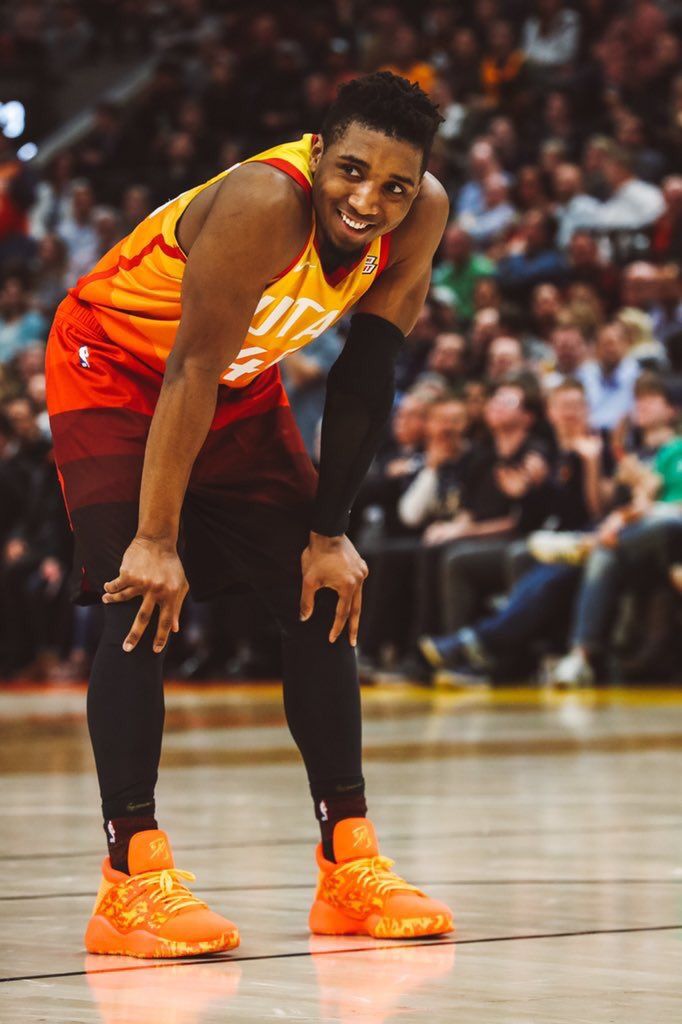 Cushioning technologies are designed to reduce such negative loads to a minimum. The outer layer of the basketball shoe is made tough and durable, so it is padded with a soft cushioning layer for protection and comfort of the feet. If you have been wearing shoes with weak cushioning, you have probably experienced heaviness and fatigue in your feet after training, as your muscles, bones and joints were subjected to severe shock and vibration.
Cushioning technologies are designed to reduce such negative loads to a minimum. The outer layer of the basketball shoe is made tough and durable, so it is padded with a soft cushioning layer for protection and comfort of the feet. If you have been wearing shoes with weak cushioning, you have probably experienced heaviness and fatigue in your feet after training, as your muscles, bones and joints were subjected to severe shock and vibration.
At the same time, in depreciation it is important to know when to stop. If you make a sole out of materials that are too soft and comfortable, then you will most likely lose many other factors, including good lockdown and support, which are so important in basketball. Cushioning is important, but having two cushions in your shoe will negatively affect the stability and confidence of every movement.
Comfort and fit
As with any athletic shoe, basketball shoes need to fit comfortably on your feet so they don't distract you from the game. This applies to both fit and other aspects that affect the comfort of wearing. Comfort features can be found both inside and outside the shoe, so be sure to check the specifications and description of the model you are interested in before buying. Here are some aspects you should consider:
This applies to both fit and other aspects that affect the comfort of wearing. Comfort features can be found both inside and outside the shoe, so be sure to check the specifications and description of the model you are interested in before buying. Here are some aspects you should consider:
Look for a variety of extras, such as a cushioned insole or soft interior padding, that will give you maximum comfort during active play. It is also important to consider the width and length of the shoe, as these are fundamental factors. In shoes that are too loose, the foot will slip, and in shoes that are too tight, the foot will constantly rub, and blood circulation will be disturbed.
If you care about the comfort of your foot, then you will probably care about what your midsole is made of and how durable it is. If it doesn’t provide enough cushioning, then your feet will have a hard time, which will certainly affect mobility. Excessive jumping, on the contrary, will negatively affect the ability to accelerate sharply at the right time.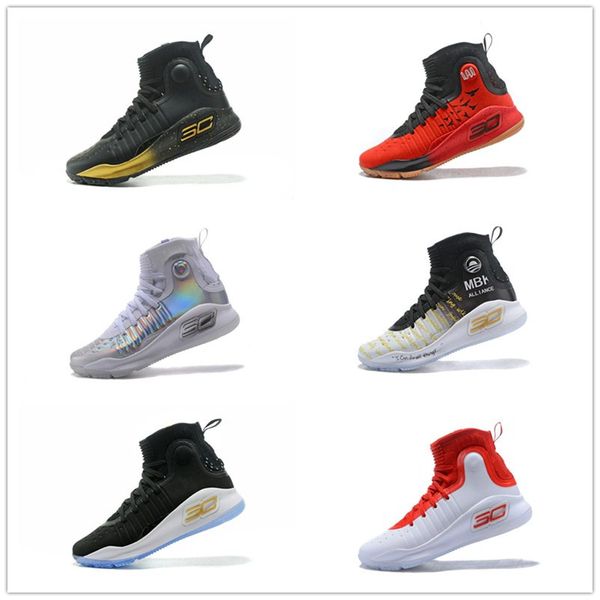
Weight
The heavier the shoes, the more difficult it will be for you to move around in them, and every extra gram here will seriously matter. If you play on the back line, then more weightless models made of modern technological materials will definitely suit you better. If you like power, then choose stronger models, but remember - every extra gram at the end of the game will make itself felt.
Protective materials
The worst thing that can happen to you in a game is injury, so it's important to think about ankle protection. If you've had some ridiculous injuries in the past, it's worth choosing a shoe that provides maximum protection for the most vulnerable part of your foot. The mesh will help make shoes lighter and provide additional air flow, but it is not suitable for protection against physical overload, so draw your own conclusions.
Ventilation
Basketball is a tough sport, which means your feet will be constantly sweaty. To minimize the risk of skin irritation and blisters, choose shoes that breathe well and provide adequate ventilation.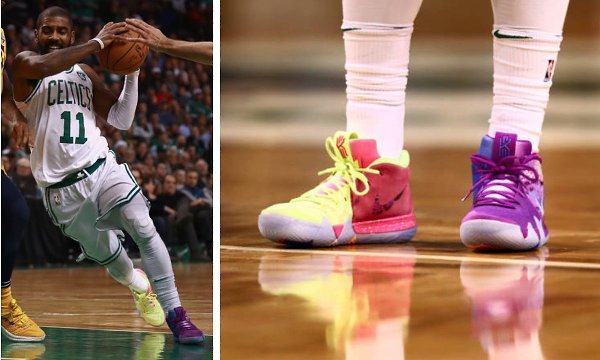 Mesh or synthetic materials are perfect for this. However, please note that they often cannot guarantee a secure fit of the foot. The best basketball shoes have breathable pockets in areas where heat is most concentrated: on the sides, on the top and in the toe area.
Mesh or synthetic materials are perfect for this. However, please note that they often cannot guarantee a secure fit of the foot. The best basketball shoes have breathable pockets in areas where heat is most concentrated: on the sides, on the top and in the toe area.
Optimal shoe size
Needless to say how important it is to choose the right shoe size. The ideal option is when the shoe fits snugly around the entire surface of the foot, while it is not difficult for you to put it on your foot. Another important point is lacing. It largely depends on how tightly the sneakers will stay on the foot.
For an optimal fit, pay attention to the following factors:
- Toe: There should be a centimeter gap between the tips of the toes and the toe of the shoe. A little less - your toes will feel tight. A little more, and your foot will slip inside the shoe, which is fraught with injury.
- Overall Width: Your shoe should fit snugly around the sides of your foot, but it should never compress it to the point where you feel pressure.
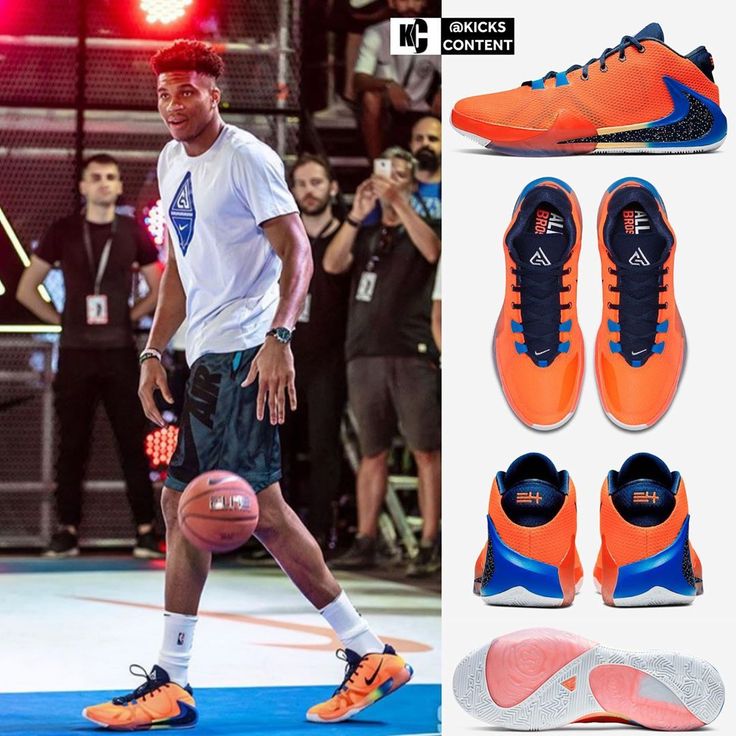 Your leg should feel as if in a gentle and warm embrace. If you find that synthetic shoes are too tight on the foot, but you are happy with their length, try choosing a leather model instead. The leather will stretch and break, so the width you need will come naturally over time.
Your leg should feel as if in a gentle and warm embrace. If you find that synthetic shoes are too tight on the foot, but you are happy with their length, try choosing a leather model instead. The leather will stretch and break, so the width you need will come naturally over time. - Weight: If your shoe feels a little heavy when you try it on, you'll feel it even more in-game. The longer you wear shoes, the heavier they seem, and this is true even for the lightest models. Choose a pair according to your weight and remember that shoes should help, not hinder.
- Heel support: The heel lock must be firm. Ideally, you should feel like the heel is locked. This will help reduce the risk of injury to the ankles, hips, and even back. Of course, excessive fixation is also useless, but the heel should not “walk” freely when running.
- Lacing: The lacing is what keeps the upper of the shoe in place. It can be laces, Velcro or traditional fasteners. Always pay attention to how they tighten the material of the shoe around your foot.
![]() Effective lacing means even distribution of tension throughout the upper. If, like most basketball players, you prefer medium or high shoes, then it is very important that the lacing is equally tight everywhere - from the very top to the tongue.
Effective lacing means even distribution of tension throughout the upper. If, like most basketball players, you prefer medium or high shoes, then it is very important that the lacing is equally tight everywhere - from the very top to the tongue.
Flexibility
Flexibility is not a quality, but rather a property that should be present in every element of footwear. When shopping for running shoes, make sure that both the upper and the sole are flexible enough for comfortable running. Flexibility is the foundation of most movements in the sport, and if your shoes don't provide enough flexibility, it usually translates into a lot of stress on your feet. Look for basketball shoes with a moderately flexible sole that will allow your feet to move as naturally as possible while running and jumping.
This is a feature that, like many others, should be present, but should not be abused. The flexibility of a material is inversely proportional to its support, so if the material is too flexible it will begin to lose its structure and hold.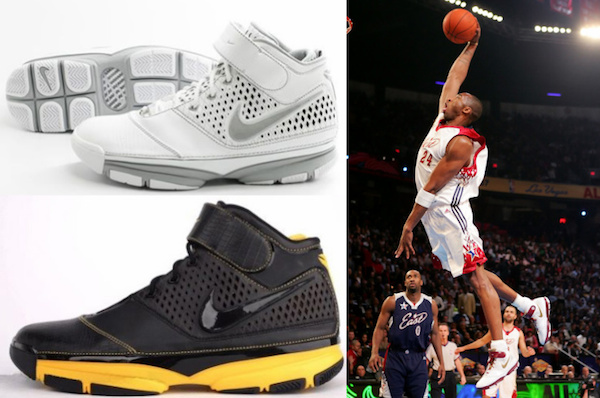
Ankle Guard
As a basketball player, you probably know more about ankle injuries than any other athlete. The ankle is very susceptible to injury during intense play. One wrong move can lead to a sprain that will put you out of action for a very long time. A good basketball shoe will help protect you from such injuries with a high upper, padded ankles, or even a built-in sleeve.
At the same time, all this should not hinder your movements. Support should only protect your foot from unnatural positions that are fraught with injury. Too much ankle support will prevent you from moving your foot freely, making dribbling much more difficult.
Basketball shoes come in low, medium and high, and your choice will affect how much support you get in the ankle area. The higher the boot, the better the support, as your ankle will be supported by a thick layer of material. When choosing, it is also very important to consider what position you play in - tall models are usually not suitable for back row players.![]()
Centers and power forwards need maximum protection on pivots and touchdowns, so high tops are just right for them. When maximum speed is required, players usually choose low models, which, in addition, provide the highest possible jump.
Arch Support
As a general rule, athletic shoes offer a standard level of arch support that is generally suitable for most people. People suffering from diseases such as flat feet experience significantly greater stress on the arches, especially when playing sports. In these cases, it all depends on the person himself. The best option, regardless of what this or that model offers, is to order individual insoles. In general, this is universal advice for any player with arch problems, since you are unlikely to find a standard shoe that will suit your foot structure (even if you think it is). There are many forces acting on the arches of the feet during exercise. If you add to this the strain caused by the lack of support on the insoles, you will have a very difficult time. And this is the best characterization of basketball.
And this is the best characterization of basketball.
See also our customers' popular basketball shoe selection
How to choose basketball shoes | Useful tips and nuances
We love basketball because this sport is quite fast and dynamic. At some moments we make sharp jerks, high jumps, unexpected stops and, of course, this is what helps us to dominate the game and love it for unique moments.
When playing basketball, there is always a high risk of getting various kinds of injuries that overshadow our pleasure and send us to the infirmary for recovery, which can last from a few days to a year. But no matter what happens, we still love this game and try to protect ourselves as much as possible when necessary, in order to feel comfortable and convenient with every step.
But why should any basketball player think about safety as much as about a clean and beautiful hit in the basket, leaving behind a pleasant sound of rustling net? A simple example: the more powerful a car's engine is, the more manufacturers focus on various systems that help make driving safer and more enjoyable.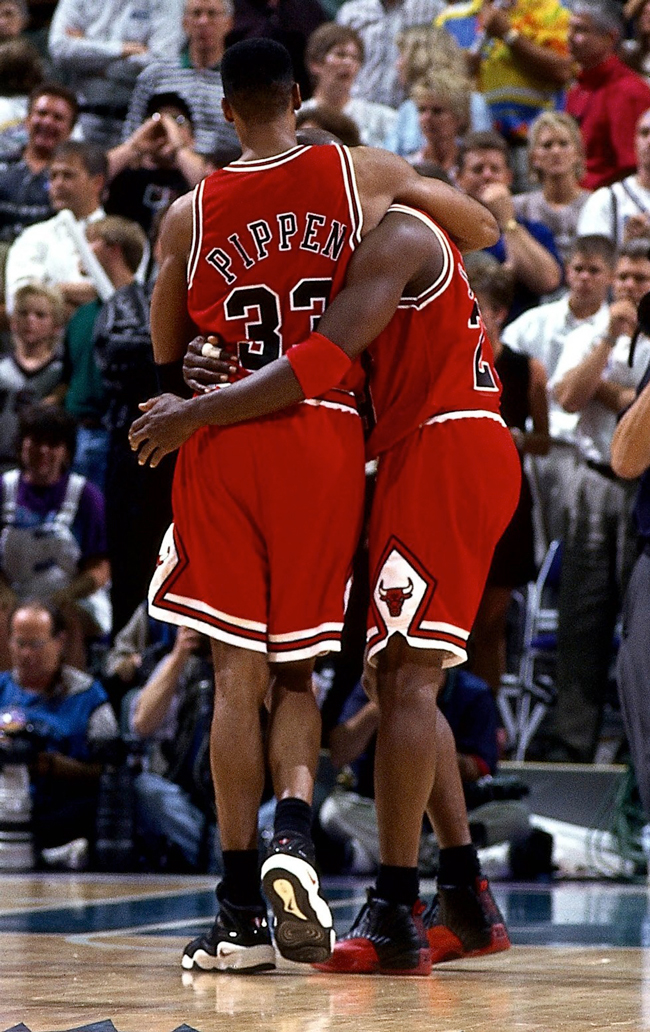 The same goes for basketball, the more jumps and jerks we make, the more we need to pay attention to safety in this game.
The same goes for basketball, the more jumps and jerks we make, the more we need to pay attention to safety in this game.
Of course safety and comfort in basketball is achieved by many factors. For example, this is a complete and balanced diet that saturates our body with numerous useful microelements and vitamins. Also, safety in the game is achieved by performing various exercises to strengthen the ligaments and joints during training periods outside the game. An equally important factor is a good warm-up before the game itself and the cleanliness of the surface on which we will perform various movements. And all these are important components that will directly or indirectly help us avoid various injuries in the future.
Quality basketball shoes are essential for a successful, comfortable and safe game. Of course, it is important to mention that any footwear is not able to protect us from injury by 100%. Even if we follow all the recommendations described above.
But does this mean that you can play basketball in any sneakers? No. And here are a few reasons. Some models are simply not designed to perform the actions that a basketball game involves. Other sneakers may have mediocre quality or short-lived materials that can lead to unfortunate consequences.
And here comes the question. How to choose basketball shoes that would help you get maximum pleasure and enjoyment from the game? Based on the ratings and reviews of both amateur and professional athletes, BasketZilla has collected the necessary information to help anyone make a choice and understand what factors to look for when buying basketball shoes.
Original, branded shoes or any other?
We recommend starting your choice with this question. We immediately want to mention the importance of buying only original basketball shoes from reputable manufacturers. Why exactly? Signature sneakers from brands like Nike, Adidas, Jordan Brand, Under armour, Reebok, ANTA, PUMA, Converse, Peak and a few more provide quality shoes with durable materials and proven technologies that have passed quality control and numerous tests. The production of branded sneakers is based on the feedback of professional athletes and their subsequent use during the game itself. Accordingly, branded basketball shoes will allow us to feel more comfortable and confident on the court.
The production of branded sneakers is based on the feedback of professional athletes and their subsequent use during the game itself. Accordingly, branded basketball shoes will allow us to feel more comfortable and confident on the court.
Here it is important to emphasize the danger of counterfeiting branded shoes. Now, when buying on the Internet or in shopping centers, you can stumble upon such fake basketball shoes that are difficult to distinguish at first glance, even for some specialists. There are a number of factors on how to distinguish a fake from the original. Here is some of them.
- verified online stores or branded departments that represent the brand
- sizes. Pay attention to the availability of half sizes and plus sizes. On sites selling fakes, often only running sizes for men and women.
- prices should not differ much or even several times from the average market value among official sellers.
By the way, our service, BasketZilla, offers to buy only original basketball shoes from well-known manufacturers in trusted and reliable online stores that have proven themselves exclusively on the positive side! Everyone has the opportunity to compare prices among these suppliers, see photos, read reviews, learn about discounts and available sizes.![]() Our service makes it much easier to find a better option. Available options can be found at the end of the article.
Our service makes it much easier to find a better option. Available options can be found at the end of the article.
But does this mean that it is dangerous and better not to buy non-branded basketball shoes? Not always. In any case, when choosing sneakers, it is worth considering several factors:
- how high-quality materials are used in them. For example, how are the seams made, are they taped in areas of increased wear? What is the upper material, does it have good wear resistance? How is the lacing system done? Is the sole durable and what is the cushioning system?
- how comfortable the shoes are. For example, is your leg comfortable when you stand, when you walk, when you jump? How tight is the foot and is there any excessive discomfort?
So, regardless of the financial component and their priorities, everyone has something to think about. Some are guided by the phrase "the miser pays twice", others do not want to "overpay for the brand.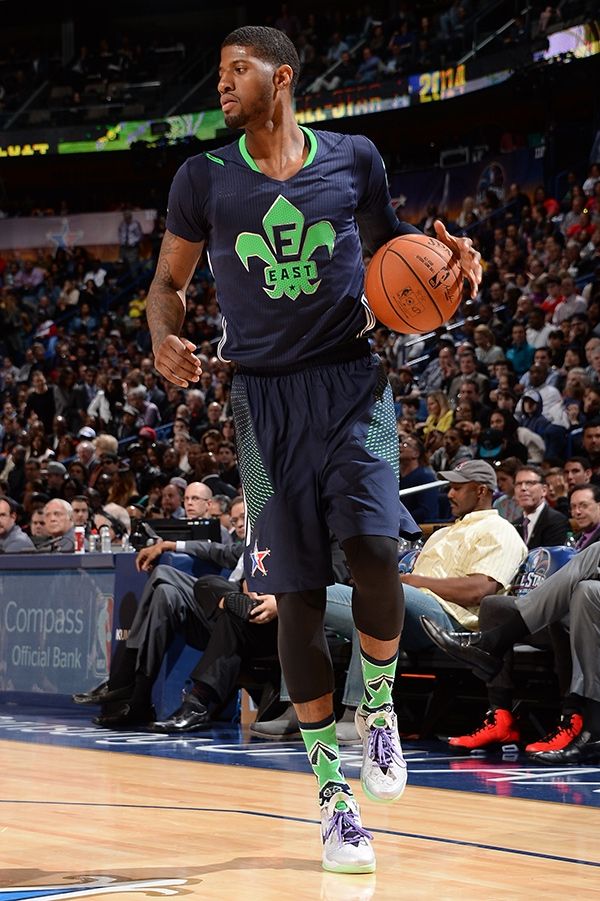 " Be that as it may, pay attention to the performance of the specific basketball model that you want to purchase. Determine for yourself at what level you will play - amateur or professional, because the more serious the approach to the game, the more serious investments should be.
" Be that as it may, pay attention to the performance of the specific basketball model that you want to purchase. Determine for yourself at what level you will play - amateur or professional, because the more serious the approach to the game, the more serious investments should be.
Shoe heights and how they affect play style
There are three types of basketball shoe heights: High, Mid, and Low. It used to be that taller players fighting under the basket should wear taller shoes, and accordingly the shorter the player, the lower the profile height of their model should be for speed and agility. Now, this stereotype has begun to become more and more blurred, as the concept of the position of a player in basketball has changed a lot. This is especially felt in the NBA, where the real breakthrough was made by Kevin Durant with the Nike KD line of sneakers and Giannis Adetoumbo with his Freaks, forever washing away the notion of classic position distribution according to player height.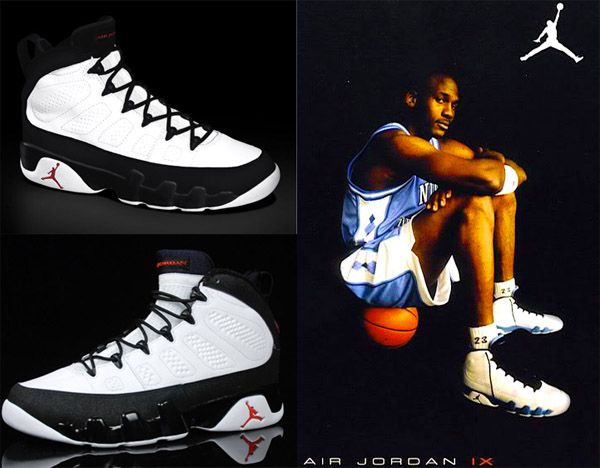
Now, when everyone wants to be LeBron James, Giannis Antetokounmpo or Kevin Durant, profile height should be chosen based on your playing style. For example, if you want to play at high speeds, using dribbling and first step speed, feel free to choose a low profile and in some cases a medium one when it has an elastic zone in the ankle area. If you want to score from above or fight under the basket, look for higher models that will help protect your joints with excellent cushioning and a padded collar. That is, although height and weight sometimes affect the style of play and these factors also need to be considered when choosing the height of a sneaker, nevertheless, not everyone wants to play in a certain position, and not everyone plays at a professional level.
Therefore, the average height of the profile in modern basketball shoes is more versatile, which can be used by both center and heavy forwards, as well as small forwards, defensemen and even point guards. Don't focus too much on your height and weight, as your main factor should be comfort and convenience with the standard basketball moves that you tend to do the most. It's also worth considering that if you're using an ankle brace, then you should choose shoes that allow you to secure it tightly.
Don't focus too much on your height and weight, as your main factor should be comfort and convenience with the standard basketball moves that you tend to do the most. It's also worth considering that if you're using an ankle brace, then you should choose shoes that allow you to secure it tightly.
If you play at a professional or semi-professional level, then you should approach the choice of profile height more carefully, perhaps after consulting with your coach, who will tell you what position he is going to use you in the future. If you are clearly assigned to a certain position, then think about what role is assigned to you in the team, what exactly is expected of you? What do you tend to do during the game itself - go under the basket, fight for rebounds, or organize fast attacks?
There is also an opinion that the height of the profile greatly affects the protection and safety of the ankle. But think about this. For example, if the ligaments in the ankle area are naturally weak, prone to twisting, or even just already stretched over years of repeated injuries, then the height of the profile will not be able to save 100% from getting a relapse.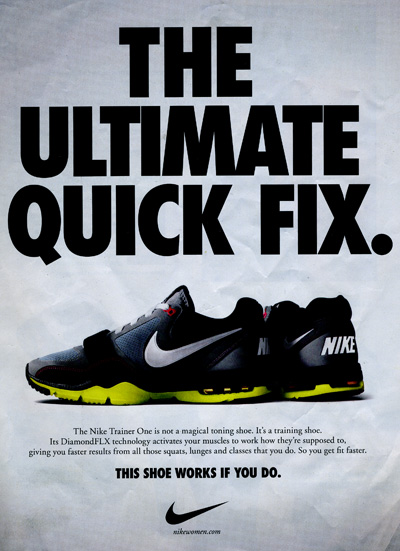 For example, a high profile will protect the ankle, but when tucked, it will create a load on the ligaments and tendons of the knee joint. A low profile, on the other hand, has a high risk of re-injury, but allows you to wear a brace and does not burden the knee. The Mid profile has something in between and is therefore more versatile, although we emphasize that no profile can completely protect your ankle.
For example, a high profile will protect the ankle, but when tucked, it will create a load on the ligaments and tendons of the knee joint. A low profile, on the other hand, has a high risk of re-injury, but allows you to wear a brace and does not burden the knee. The Mid profile has something in between and is therefore more versatile, although we emphasize that no profile can completely protect your ankle.
The height of the profile also allows for a different fit with the lacing system. Sometimes a lot depends on the leg lift, which determines the positive or negative feedback about a particular model.
So, the height of the profile should help when playing basketball, and not interfere or cause discomfort. The surest way to choose a profile height is to play with each of these types and try to experience their advantages and disadvantages for yourself.
About the surface on which we plan to play
Before buying basketball shoes, it is worth considering whether we are buying them for indoor or outdoor play. In the halls, as a rule, there is often parquet and, in rare cases, a rubberized coating. In outdoor areas, the coating is usually more rigid for durability in open spaces. Therefore, depending on the surface, we should choose our running shoes.
In the halls, as a rule, there is often parquet and, in rare cases, a rubberized coating. In outdoor areas, the coating is usually more rigid for durability in open spaces. Therefore, depending on the surface, we should choose our running shoes.
For example, for a gym, we'd better take a softer sole, which will help to achieve maximum grip on the surface, of course, provided that the parquet is carefully cleaned and there is no dust, dirt or even unpainted spots on it. The tread pattern is also responsible for grip, and many note the high efficiency of the so-called “Christmas tree”, but it should not be made a priority when choosing, since other patterns have no less positive reviews.
For the outdoors, we should opt for a shoe with a firmer outsole to avoid wear and tear on tarmac or any other rough surface. It must be remembered that any sneakers on outdoor playgrounds wear out faster, which means that they should be more carefully cared for.
Many people point out the advantages of having models that flex better towards the toe and are fairly firm or less flexible in the midsection.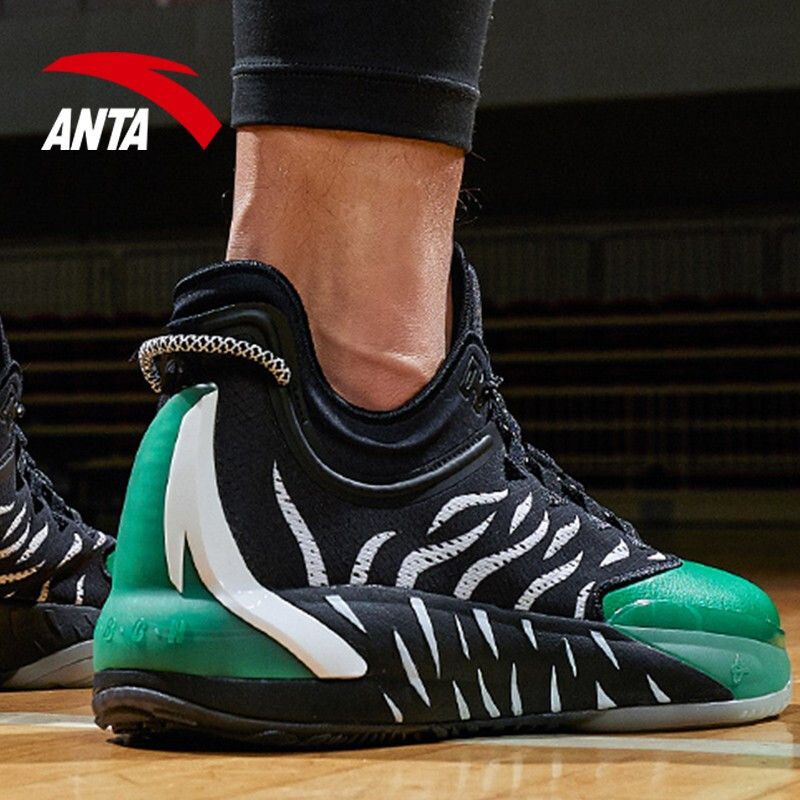 This will make jumping much easier on any of the surfaces.
This will make jumping much easier on any of the surfaces.
Another important factor is the cushioning system. Each brand and model is different. And of course, some shoes are designed specifically for speed, others for overhead shots. But depreciation should be, otherwise soon you can get problems not only with the knee, but also with the spine. Many basketball players who played on different grounds note that playing on asphalt is more traumatic and uncomfortable for jumping than on other surfaces. Therefore, if you plan to play at full strength on asphalt, then consider when choosing good cushioning and reliable traction with a wide sole that will increase stability and stability during the game.
Now there are balanced basketball shoes that can be used both indoors and outdoors. We emphasize that a lot depends on your style of play, further operation and care of the model.
Therefore, determine for yourself the surface on which you will play.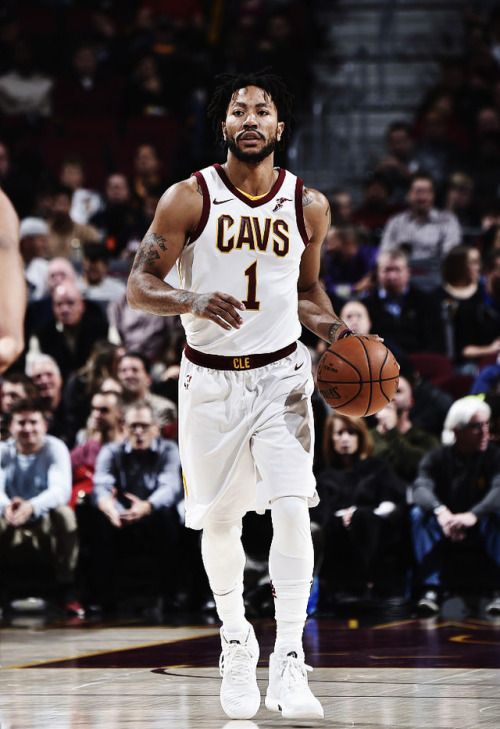 It may be worth taking a few sneakers so that one can be used in the gym, the other on the street. This is the most correct approach if you play often and at the limit of your capabilities.
It may be worth taking a few sneakers so that one can be used in the gym, the other on the street. This is the most correct approach if you play often and at the limit of your capabilities.
About the upper materials
Today's basketball shoes are made from different materials than they were in the past. For a long time it was believed that only natural leather is able to meet all the requirements of basketball shoes. However, despite the high strength, such models are quite heavy for a modern fast game. And so now most brands use a combination of genuine leather, synthetic leather, textiles, mesh materials, plastics and other components that can create the perfect option for any basketball player.
Everyone has their own priorities when choosing the material of the upper. For some, the basis is durability and strength, for others, lightness and ventilation are the most important factors. Modern basketball shoes have a balanced composition of materials that meets even the most demanding requirements.
Take a look at your old running shoes and identify their weaknesses and worn spots. For some, this will be the area in the forefoot in the area of the big toe, and not only the materials of the upper, but also the sole. Someone has a lot of wear on the rear end and the depreciation system. For others, the lacing system and uncomfortable tongue are uncomfortable. Whatever it is, take this moment to yourself so that when buying new sneakers, think about how they will cope with our problem areas.
So, upper materials often emphasize certain points - lightness, ventilation, comfort, flexibility, and so on. Think about what is more important for you and choose ahead.
What to look for when trying on
Ideally, each model would be well measured. But what if you are shopping online? It’s good if you know your size for each brand and purchase it on subsequent purchases, because each manufacturer has its own size grid. But what if we buy sneakers for the first time and through an online store?
The most important thing is to determine the size of the foot in terms of length and width.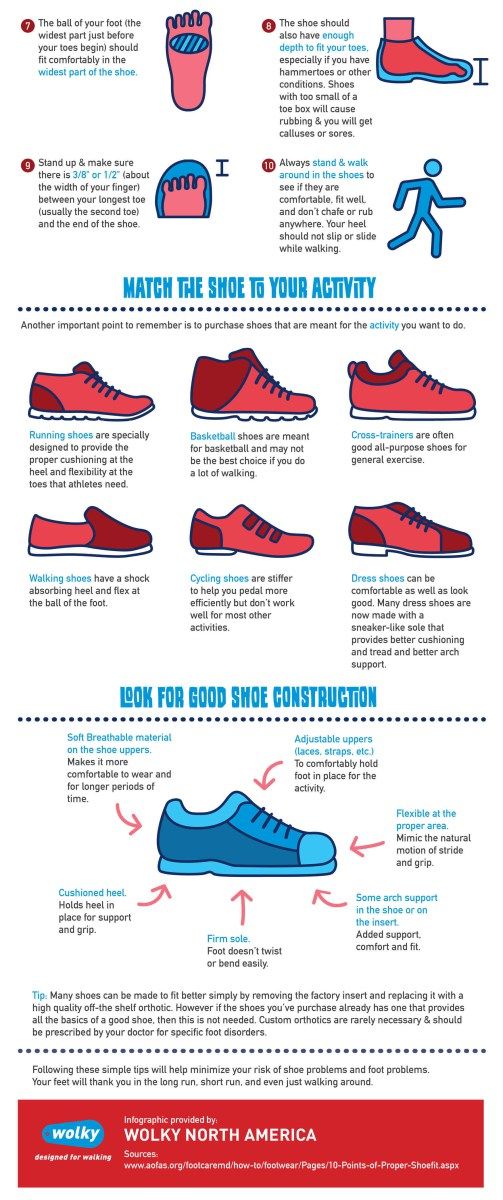 It is important to focus on the size grid of the manufacturer! It is necessary to take measurements of the foot on a flat surface while standing and preferably in the second half for when we walked enough. Stand on a white sheet of paper and circle the foot at a vertical angle with a pencil or pen. Measure the length from the thumb to the heel. This is a classic version with the definition of the length of the foot. There are rare cases when different models sit differently in the same company. It depends on the structural features of the shoe and the technologies that were used to create it. Also, to determine the size, you can go to the nearest department with the sale of sneakers of a particular company. But this option is only possible if original sneakers are sold there, and not a fake, in which the dimensional grid has a difference. In extreme cases, you can try on your friend's shoes, who have a similar or close size.
It is important to focus on the size grid of the manufacturer! It is necessary to take measurements of the foot on a flat surface while standing and preferably in the second half for when we walked enough. Stand on a white sheet of paper and circle the foot at a vertical angle with a pencil or pen. Measure the length from the thumb to the heel. This is a classic version with the definition of the length of the foot. There are rare cases when different models sit differently in the same company. It depends on the structural features of the shoe and the technologies that were used to create it. Also, to determine the size, you can go to the nearest department with the sale of sneakers of a particular company. But this option is only possible if original sneakers are sold there, and not a fake, in which the dimensional grid has a difference. In extreme cases, you can try on your friend's shoes, who have a similar or close size.
If the purchase is made directly in the store, then it is best to do it in sports socks and after we have walked enough, because our legs have already received some tension and, accordingly, are slightly swollen.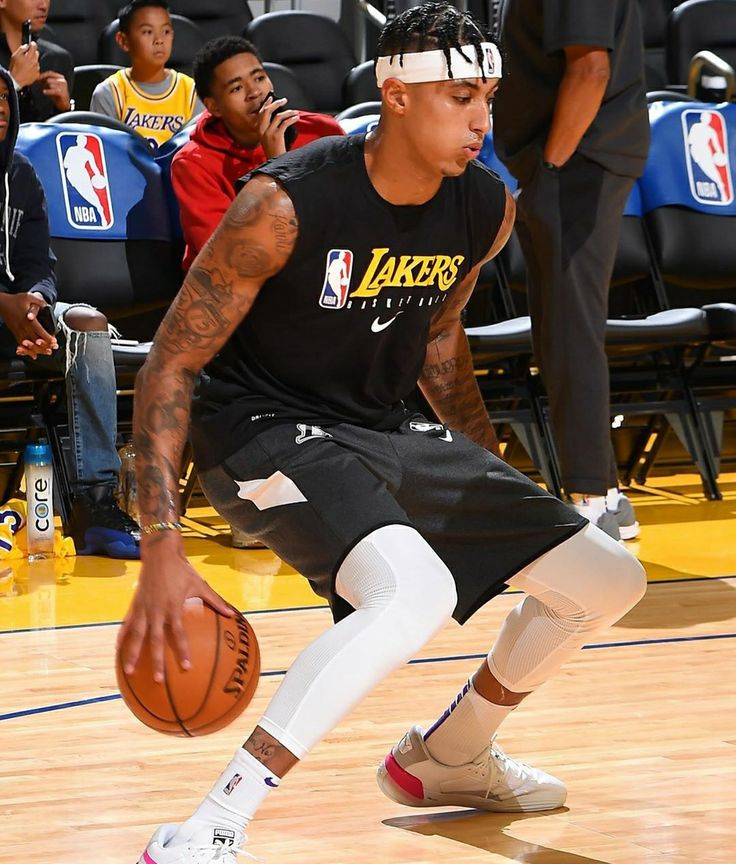 This is quite normal, because during the game our feet also tend to swell. If the purchase is made in the morning or when the legs did not have enough tension, then it is better to take a model half a size larger to avoid discomfort during the game. If you need a tight fit, it is better to take the size in size.
This is quite normal, because during the game our feet also tend to swell. If the purchase is made in the morning or when the legs did not have enough tension, then it is better to take a model half a size larger to avoid discomfort during the game. If you need a tight fit, it is better to take the size in size.
Be sure to try on both feet, as the length of the foot may vary and one of the feet may feel uncomfortable later on.
Pay attention to the removable insole, which can be washed or even replaced in case of need.
The next step is to lace up the shoes tightly, because one of the most important things about basketball shoes is the ability to lock the foot in tight thanks to the lacing system. Now, in addition to the laces, there are various straps, latches and sometimes zippers. Tight fixation of the foot is the key to good stability and stability. Some NBA players, for example, periodically lace up their shoes at halftime during a game for optimal performance.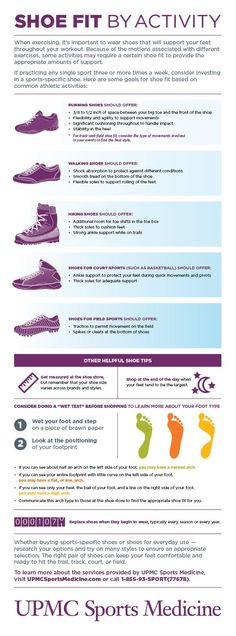
Of course, it is worth noting that some people do not like the tight fixation of the sneaker, which is why you can notice the models periodically flying off the feet of the players. The best thing is to find a middle ground. You do not need to pinch the foot too much, because there is a risk of poor blood circulation in that area of the body. But you should not allow the foot to “walk” in the sneaker, because there is a danger of slipping, which can lead to injury.
Next, get up and walk around, if possible, make jumps and sudden stops, as during the game (Warn the seller in advance to avoid misunderstandings). Take your time in this moment, let your feet feel the shoes, get used to it.
If at this moment you notice a sharp discomfort, then either change the size or the model itself. If this discomfort is not significant, then this may indicate that the model needs to be smashed. Remember that if the shoes fit you in size, then subsequent rubbing and calluses are a feature of your foot or the operation of a particular model.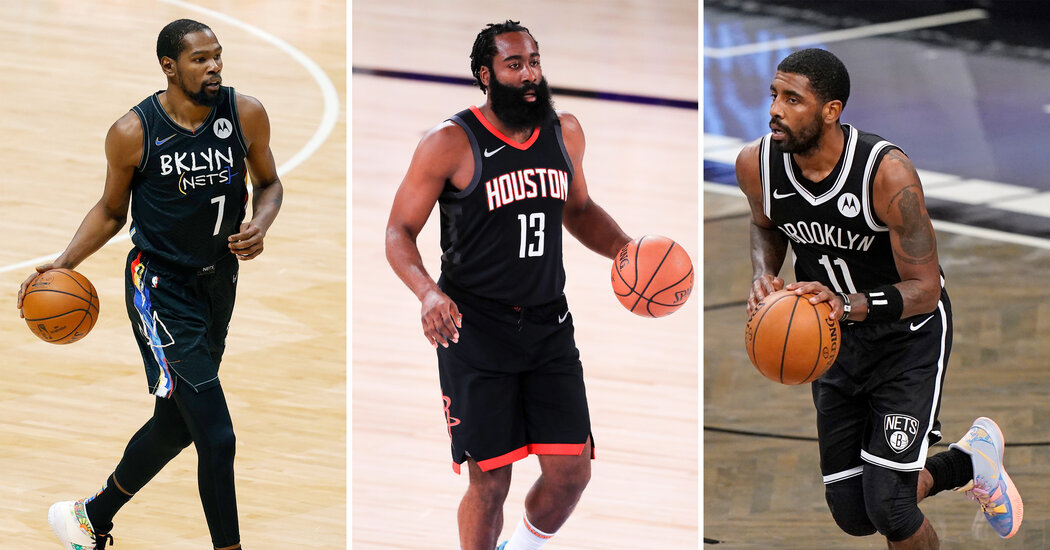 If they do not go away, you can use various spacers, stretching sprays, special insoles, or use folk tricks to get the desired result.
If they do not go away, you can use various spacers, stretching sprays, special insoles, or use folk tricks to get the desired result.
If there are any features, such as a wide foot or anatomical deviations, then take care of a consultation with a specialist, orthopedic insoles, ointments, exercises, and so on.
So, trying on shoes should be mandatory. However, if the purchase is made through an online store, carefully take measurements and, if necessary, consult with a manager or consultant.
Conclusions and highlights
So let's summarize and look at the points that you need to consider when buying.
- Buy branded, branded and original shoes from trusted online stores or points of sale. Remember, the better your feet are taken care of, the more they will be grateful to us throughout their lives. If you find budget, non-branded sneakers, determine if they will meet the basic requirements of basketball models.
- Define your playing style and choose a profile height that will help you perform your usual game movements with ease and comfort.
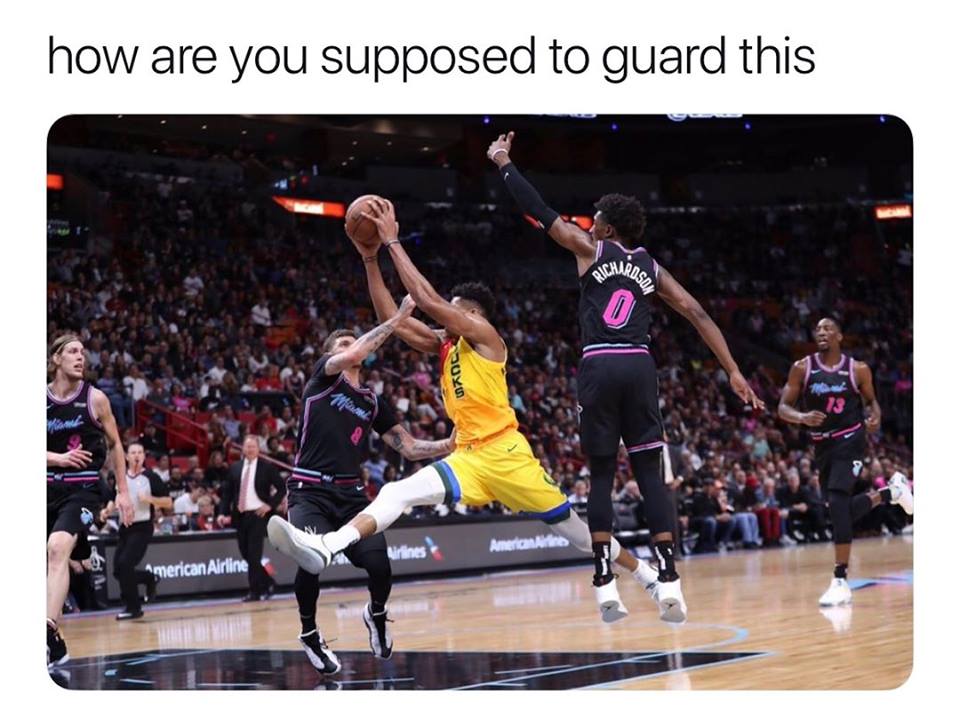
- Consider what kind of surface you take your shoes for. The hall is a soft sole, the street is more solid. You can buy universal ones, but do not be lazy to take care of the shoes so that they last a long time.
- Consider what is most important to you in a basketball shoe? Lightweight, breathable, durable, flexible and choose your upper design accordingly. Think about the wear spots on old sneakers and focus on strengthening them in the model you're going to buy.
- Do not rush to buy right away. Try on carefully. If you buy through the online store, take measurements and consult with the sales manager. Do not be afraid to make a mistake, since most models are made to fit standard foot sizes.
Therefore, listen, but in any case do not rely on the opinions of others about this or that model, because not only the shape of the foot is different for everyone, but also the style of play.
Please note that finding the perfect shoe can take some time and effort.